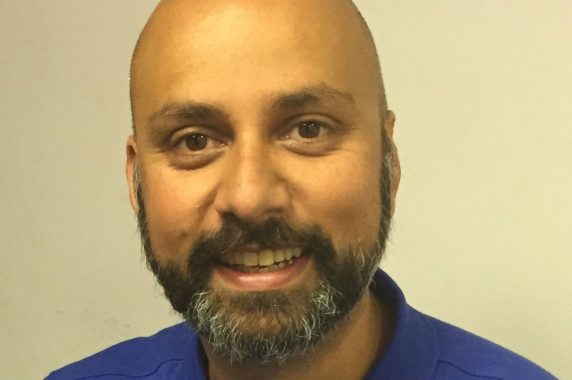How our home opioid overdose kits are saving lives

We’re a specialist practice in Middlesbrough treating around 1,000 patients with drug or alcohol addiction and their children. This population presents unique challenges, reflected in how we care for our patients.
As well as one full-time-equivalent GP and a nurse practitioner, we have a range of addiction nurse specialists, clinical support workers and health improvement assistants. Our aim is to make every contact count with a hard-to-reach population who are disenfranchised about their health and wellbeing.
Our approach
The health improvement assistants work with patients as soon as they come into the building – we’ve turned our waiting area into a therapeutic space where we have health-related activities going on so patients aren’t just sitting there. For example, a health improvement assistant might be doing alcohol awareness – getting people to drive remote control cars wearing beer goggles to simulate being under the influence of alcohol, as part of an alcohol audit assessment.
Or a representative from the recovery community might be there to promote mutual aid (alcoholics anonymous or narcotics anonymous), or to engage patients in other social activities such as gardening, cooking on a budget or football. Care co-ordinators offer services to individuals who might be having social needs (issues with housing or benefits) and we have links with an employment agency that comes along once or twice a week.
We also try to create a relaxing atmosphere. We have sofas in the waiting area to make patients feel physically comfortable and we also work on first-name terms, for a relaxed approach.
We recognise that the chaotic lives of our patients mean they don’t always get to appointments at a given day or time, so we’ve created a duty system whereby if somebody comes in who has missed an appointment they can be reviewed briefly by the duty worker and booked into a sit-and-wait service, so we don’t get people who are left without an opiate substitute prescription (unless it is unsafe to continue prescribing).
We aim to strike a balance between people taking responsibility for their own recovery, while acknowledging the challenges addiction can bring to a person’s ability to lead a structured lifestyle.
What we did
One of the areas that we’ve really pioneered in the past couple of years is the use of take-home overdose kits, which will temporarily reverse the effects of heroin after an overdose while medical help is called.
We started doing this a year ago when the law changed to allow us to supply these kits and we have worked with the public health department in Middlesbrough, which has funded the project. While patients are waiting to be seen, either individually or in a group, they are offered this kit and shown how it is used, and trained in the recovery position and how to call for help.
When we first started we offered a prescription for the kit but we now issue the kits directly to patients and their carers after identifying those who are suitable and training them.
We’re particularly targeting certain populations, as we know that people who are released from prison are at higher risk of opiate overdose than the rest of the opiate-using population.
Challenges
This was an extra clinical duty that we were adding to our day, so we had to make sure that it was flexible and manageable for the clinical team.
Results
We have issued around 400 kits, and reissued 71 – so we know that a number have been used in overdose situations successfully and have saved lives. A Scottish study showed these kits can reduce opiate-related deaths by 36%.
The future
We’re in the process of liaising again with the public health department so we can work with local hostels to ensure they’ve got access to kits. We’re working with partner agencies to use the kits in needle exchange environments. We’re aiming to flood Middlesbrough with these kits so that it doesn’t matter where you are or what the situation is, the kits are readily available in an overdose situation.
The key advice for any GP practice treating patients with addiction is that people are struggling with a range of problems and addiction is often the way they mask or cope with their difficult life situations. If you can look beyond the stereotypical image of drug use you can start to support people in their journey of recovery. Addiction is a multifaceted issue that requires an empathetic multi-agency approach to maximise an individual’s potential to recover and live a life free of substances.
Daniel Ahmed is a partner, specialist nurse prescriber and psychotherapist in Middlesbrough
Visit Pulse Reference for details on 140 symptoms, including easily searchable symptoms and categories, offering you a free platform to check symptoms and receive potential diagnoses during consultations.











